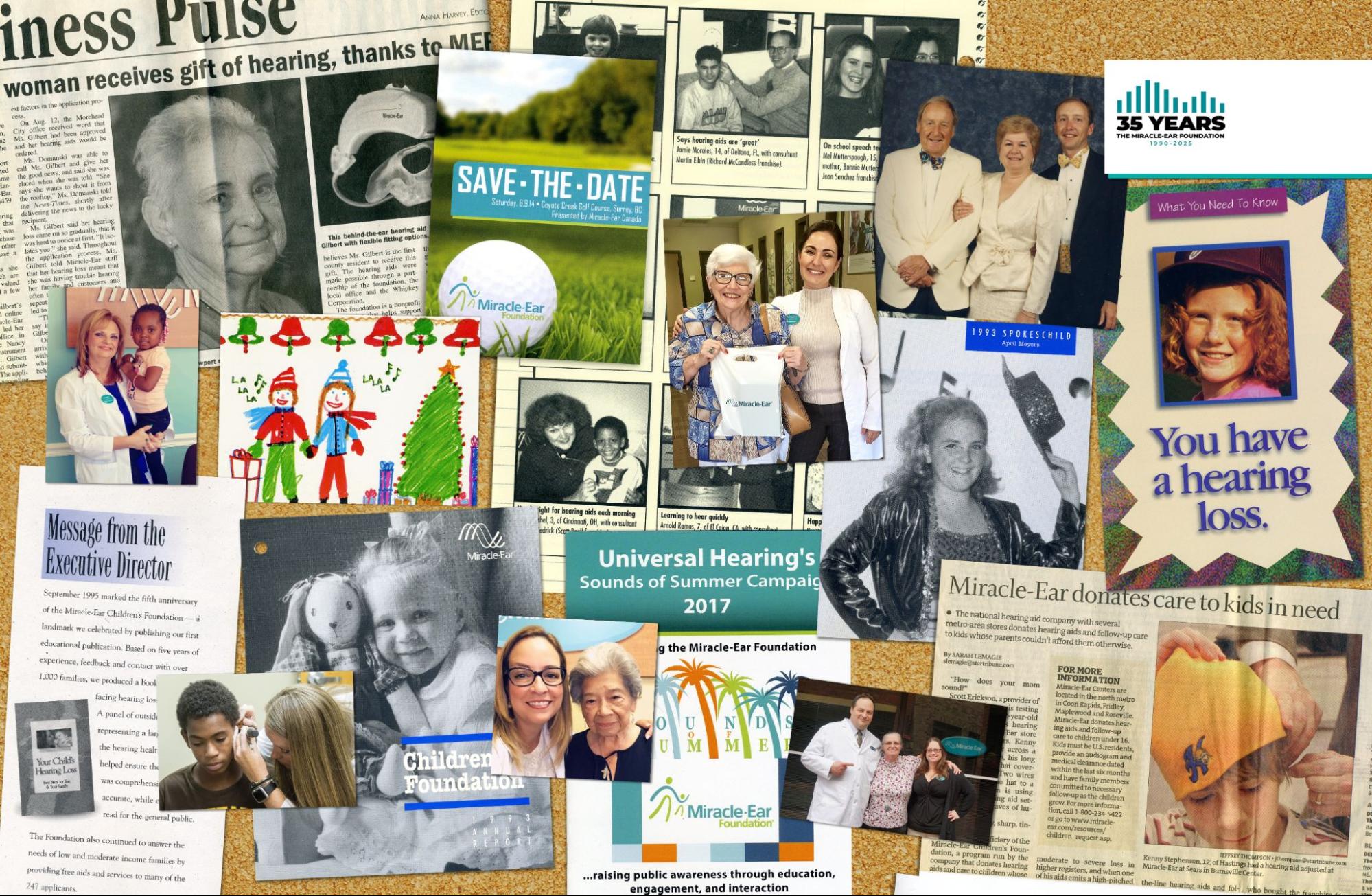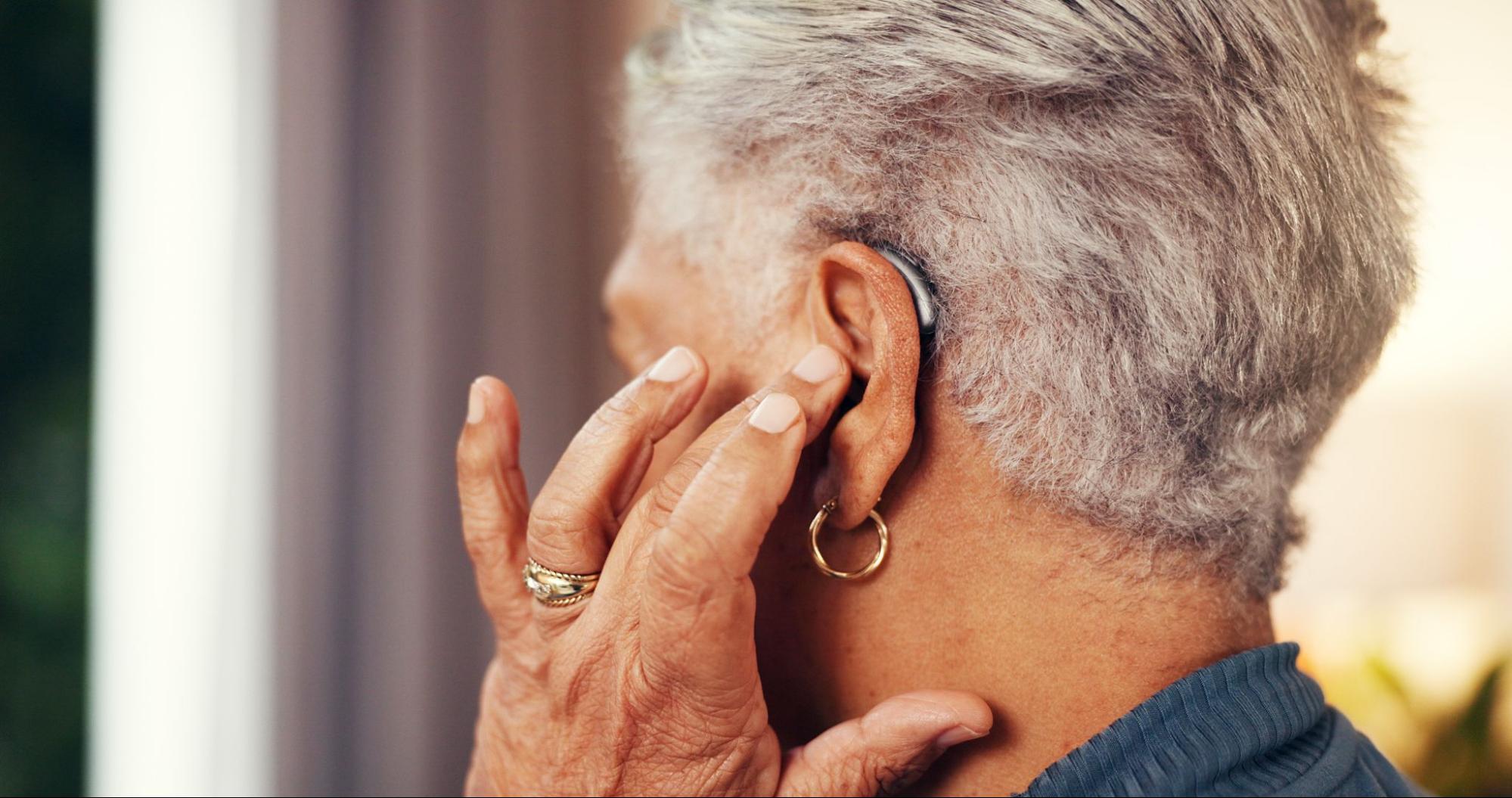The silent sacrifice: Hearing loss among veterans—a national crisis deserving our attention
.jpeg)
For generations, America's veterans have returned from service carrying visible and invisible wounds. Among the most common of these, and least recognized, is hearing loss. While the public often associates veterans' health with other physical trauma and PTSD, hearing loss and tinnitus are, in fact, the two most prevalent service-connected disabilities among veterans in the United States¹.
This article explores why veterans are at such high risk, the profound impact hearing loss has on their lives, the barriers they face in accessing care, and why this is a societal issue that demands urgent attention and empathy.
Why are veterans at such high risk of hearing loss?
Extreme noise exposure
Military service is synonymous with hazardous noise. Veterans are routinely exposed to sound levels far exceeding what is considered safe:
- Combat and training: Gunfire, artillery, explosions, and heavy machinery can reach 120–150 decibels (dBA). Anything above 120 dBA can cause immediate hearing damage².
- Multiple tours and cumulative exposure: Many veterans serve multiple deployments, compounding their risk with each exposure to blasts and loud equipment³.
- Sudden and unavoidable events: In combat, service members cannot always use hearing protection.
Blast injuries and traumatic brain injury (TBI)
- Blasts: Explosions create shockwaves that damage both hearing structures and the brain. Veterans exposed to blasts are significantly more likely to experience hearing loss, tinnitus, and auditory processing difficulties⁴.
- TBI: Mild traumatic brain injuries are common in modern warfare and are closely linked to hearing disturbances, tinnitus, and central auditory dysfunction⁵.
Other risk factors
- Ototoxic chemicals: Exposure to certain chemicals and medications during service can damage hearing⁶.
- Lack of hearing protection: Inconsistent use of hearing protection, especially in earlier eras, left many veterans vulnerable⁷.
- Aging: Age-related hearing loss compounds the effects of noise exposure, making older veterans particularly susceptible⁸.
The scope of the problem: Prevalence and impact
- Over 1.3 million veterans receive disability compensation for hearing loss, and more than 2.3 million for tinnitus⁹.
- Veterans are 30% more likely than nonveterans to have severe hearing loss³.
- In studies, 61% of veterans self-report hearing loss and 74% report tinnitus, rates far higher than the general population¹⁰.
- Among Iraq and Afghanistan veterans, nearly 8% have diagnosed hearing loss and 6.5% have tinnitus, with higher rates among those exposed to blasts or TBI¹¹.
Tinnitus—the persistent ringing or buzzing in the ears—can be as debilitating as hearing loss itself, interfering with concentration, sleep, and emotional well-being¹².

The human toll: Mental health, isolation, and quality of life
Communication barriers and social isolation
Hearing loss is not just a sensory issue—it's a barrier to social connection. Veterans often struggle to understand speech, especially in noisy environments, leading to frustration and withdrawal. Many report withdrawing from family and friends because they cannot participate fully in conversations, exacerbating loneliness and isolation¹³.
Mental health complications
- Depression and anxiety: Veterans with hearing loss are at increased risk of depression and suicidal ideation¹⁴.
- PTSD: Hearing loss and tinnitus can intensify PTSD symptoms. The inability to hear can heighten hypervigilance and stress¹⁵.
- Cognitive decline: Untreated hearing loss is associated with accelerated cognitive decline and increased risk of dementia¹⁶.
Employment and daily functioning
Veterans with hearing loss may struggle to maintain employment, especially in communication-heavy roles. Severe cases can lead to early retirement and financial strain³.
Gaps in coverage and barriers to care
Eligibility and access through the VA
The Department of Veterans Affairs (VA) is the largest provider of hearing healthcare in the U.S., employing more than 1,300 audiologists¹⁷. While VA policy states that any enrolled veteran is eligible for hearing aids, the reality is more complex:
- Veterans must prove their hearing loss is service-connected to receive compensation and devices¹⁸.
- Some non-service-connected veterans may qualify, but many are unaware of their eligibility¹⁸.
- Navigating enrollment and scheduling can be confusing and time-consuming¹⁷.
Barriers to seeking and using hearing care
Despite available resources, many veterans do not consistently seek care:
- Uncertainty: Nearly 43% of veterans are unsure who to contact for hearing care⁹.
- Work and life constraints: Demands like work schedules or transportation prevent some from accessing care.
- Stigma and denial: Hearing aids are often viewed as a sign of weakness or aging¹⁹.
- Mental health barriers: PTSD, anxiety, and depression can make it harder to seek care or adapt to devices¹⁴.
Barriers to hearing aid use and compliance
Even when hearing aids are provided, hearing aid use among veterans remains low. Current research points to a number of factors:
- Over 70% of veterans who decline aids say their hearing "isn't bad enough" yet⁹.
- For those outside VA services, costs can be prohibitive.
- Device discomfort and technical issues deter use²⁰.
- Veterans with profound hearing loss may receive limited benefit and require alternatives such as cochlear implants²¹.
The importance of early detection and comprehensive care
Why early detection matters
The longer hearing loss goes untreated, the greater the risk of social withdrawal, depression, and cognitive decline¹⁶. Veterans should receive screenings at the start and end of service, and regularly thereafter, especially if exposed to blasts or loud noise⁷.
Integrated care models
The VA provides integrated audiology and mental health services, but coordination gaps remain. Family and community involvement are also critical, helping veterans navigate care and stay supported¹⁴.

What can be done: Recommendations and call to action
Expand awareness and education
- Veterans and families: Outreach should emphasize the risks of hearing loss, early intervention, and available VA benefits²².
- Providers: Primary care and mental health professionals should screen for hearing issues and refer veterans to specialists.
Streamline access and reduce barriers
- Simplify VA enrollment and scheduling.
- Launch campaigns to reduce stigma around hearing loss and hearing aid use.
- Integrate mental health support with hearing care.
Improve hearing aid use and support
- Ensure devices are personalized and supported with training.
- Provide access to cochlear implants for veterans with profound loss.
- Offer ongoing follow-up, including remote care.
Support for non-VA veterans
Partnerships with nonprofits and manufacturers can expand access to free or low-cost devices. For example, the Gift of Sound® program provides hearing aids and care for those who cannot afford them, ensuring veterans outside the VA system are not left behind.
Conclusion: Hearing loss—a societal responsibility
Hearing loss among veterans is a silent epidemic rooted in the realities of service and compounded by barriers to care, stigma, and mental health challenges. It robs veterans of their ability to connect, communicate, and thrive in civilian life.
Every veteran deserves hearing healthcare. By recognizing hearing loss as a public health issue, supporting early detection, streamlining access to care, and integrating mental health support, we honor not just their service, but their right to the pursuit of a full and connected life.
References
- Starkey. (2024). Most common health issues for veterans. https://www.starkey.com/blog/articles/2024/11/most-common-health-issues-for-veterans
- PubMed. (2015). Noise exposure and hearing loss in veterans. https://pubmed.ncbi.nlm.nih.gov/25600417/
- Clear Hearing Seattle. (2023). Hearing loss in veterans: Causes, challenges, and how we can help. https://clearhearingseattle.com/post/hearing-loss-in-veterans-causes-challenges-and-how-we-can-help/
- Sorenson. (2021). Hearing loss and mental health risks for veterans. https://sorenson.com/blog/captioncall/hearing-loss-and-mental-health-risks-and-resources-for-veterans/
- ASHA. (2021). Traumatic brain injury and auditory outcomes. https://pubs.asha.org/doi/10.1044/2021_JSLHR-20-00687
- PubMed. (2013). Ototoxic chemicals and hearing loss. https://pubmed.ncbi.nlm.nih.gov/23341275/
- War Related Illness & Injury Study Center. (2023). Hearing difficulties among veterans. https://www.warrelatedillness.va.gov/warrelatedillness/education/healthconditions/hearing-difficulties.asp
- Research VA. (2023). Hearing loss and aging in veterans. https://www.research.va.gov/topics/hearing.cfm
- PubMed. (2021). Prevalence of hearing loss among veterans. https://pubmed.ncbi.nlm.nih.gov/39791021/
- PMC. (2022). Self-reported hearing loss and tinnitus in veterans. https://pmc.ncbi.nlm.nih.gov/articles/PMC9015011/
- Hearing Aid Doctors. (2022). Hearing health after military service. https://hearingaidoctors.com/patient-resources/hearing-health-after-military-service
- PMC. (2019). Impact of tinnitus on well-being. https://pmc.ncbi.nlm.nih.gov/articles/PMC7980480/
- Flaudiology Associates. (2021). Impact of hearing loss on veterans. https://flaudiologyassociates.com/impact-hearing-loss-veterans/
- PMC. (2020). Mental health complications in veterans with hearing loss. https://pmc.ncbi.nlm.nih.gov/articles/PMC11311185/
- ASHA. (2022). Hearing loss, PTSD, and stress. https://pubs.asha.org/doi/10.1044/2022_AJA-22-00117
- JAMA Otolaryngology. (2024). Hearing loss and dementia risk. https://jamanetwork.com/journals/jamaotolaryngology/fullarticle/2813302
- VA. (2023). VA hearing services. https://www.innocaption.com/recentnews/va-hearing-aids
- VA. (2019). Hearing aids fact sheet. https://www.rehab.va.gov/PROSTHETICS/audiology/docs/VA-Hearing-Aids-Fact-Sheet.pdf
- Veterans Hearing Org. (2023). The silent struggle: Challenges faced by veterans with hearing loss. https://www.veteranshearing.org.uk/news/the-silent-struggle-shedding-light-on-the-challenges-faced-by-veterans-with-hearing-loss/
- Helping Me Hear. (2023). Understanding the risk of hearing loss among veterans. https://www.helpingmehear.com/hearing-health/understanding-the-risk-of-hearing-loss-among-veterans/
- PMC. (2021). Alternative hearing solutions in veterans. https://pmc.ncbi.nlm.nih.gov/articles/PMC11311185/
- Audiology Today. (2022). The importance of education on veteran hearing loss. https://www.audiology.org/news-and-publications/audiology-today/articles/military-service-and-hearing-health-the-noise-study/






